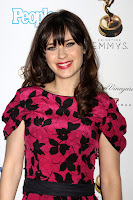When I was young, I was convinced that my pale skin was
ugly. Ever since I can remember, being tan has been considered beautiful—while
pale skin was called things like “sickly” and “pasty.” I was jealous of my
friends that could tan effortlessly, of my sister who always had a healthy
golden glow, of my best friend who couldn’t burn if she tried. I, on the other
hand, burn in about five minutes.
 |
| Society says tan is more beautiful. What do you think? Image from thebeachtanning.com |
My mother tried to convince me countless times that my pale
skin was just as beautiful as others, but I never believed her. To this day, I
still find myself wishing at times that I were just a little darker, a little
less red and a little more bronze. But mostly I’ve accepted that my Irish
heritage simply doesn’t allow for that—and that’s okay.
Because even as I look wistfully at my tan friends, I
remember that all the safe sun practices I’ve learned and all the tanning
booths I haven’t visited make me much less at risk for developing melanoma. I have also found role models in pale-skinned actresses that I consider incredibly beautiful people—Anne
Hathaway, Nicole Kidman, Evanna Lynch, Naomi Watts, Scarlett Johansson, Zooey
Deschanel, and more.
| Anne Hathaway Helga Esteb / Shutterstock.com" |
 |
| Zooey Deschanel Helga Esteb / Shutterstock.com |
Tanning beds have been around for years now. And even though
scientific data conclusively points out that using them increases the risk for
developing melanoma, we continue to put ourselves in harm’s way. One Tacoma,
Washington, couple found out the dangers of tanning the hard way when their
daughter Shelley died of melanoma at just 34-years old. She had tanned
frequently as a teen and felt like she needed to be tan to be beautiful.
“The paradigm that tan skin is beautiful killed my
daughter,” said Shelley’s father, Peter Rasmussen. Rasmussen has urged lawmakers countless
times over the past four years to pass a bill that would ban teens and children
from tanning beds, and Washington State is currently considering raising the
minimum usage age up to 18.
 |
| About 13% of teens say they've used tanning beds.
Image: Shutterstock
|
In a study conducted by researchers at Washington
University, children as young as 10 years old have used tanning beds in
Missouri. Of the 243 randomly selected salons surveyed, 65% said children
between 10 and 12 would be allowed to use tanning beds. In many cases,
operators at salons also claimed that there were no risks associated with indoor
tanning and that tanning would help protect them from future sunburns.
But those claims are completely false. According to the CDC,
users of tanning beds under the age of 35 have a 75% increased risk of
developing melanoma, eye cancer, changes in skin texture, and other problems.
 |
| Tan Mom before and after tanning beds Image from people.com |
Mostly, this article was brought on by the recent news that
New Jersey’s infamous “tan mom” had all charges against her dropped. She was
accused of taking her 5-year-old daughter tanning with her, which is illegal in
New Jersey where the minimum age is 16. The world made fun of tan mom for her
burnt appearance, but it mostly made me sad to see that someone would become so
obsessed with being tan. She was ridiculed, but she was just an extreme example
of what happens when we define beauty so narrowly.
Her daughter is being taught that she isn’t beautiful just
the way she is—that she has to conform to ridiculous parameters set by society
to be considered pretty. And that’s just not true. We are each made a little
differently, and it’s so important that we pass that message on to our
children. No matter your natural skin color, eye color, race, ethnicity, size, shape...
You are beautiful, just the way you are. Pass it on.
 |
| YOU ARE BEAUTIFUL! Image from inspiredbycharm.com |







